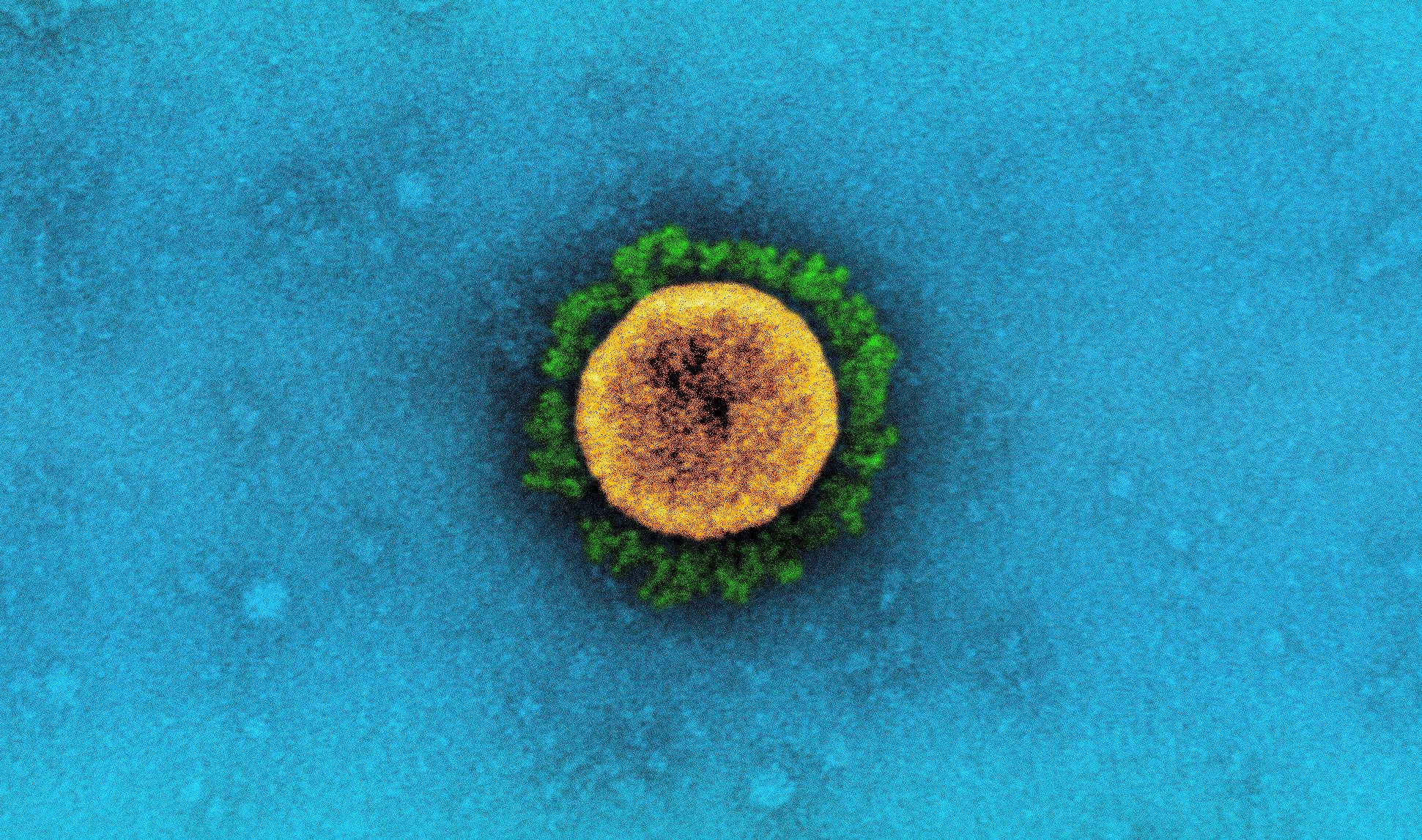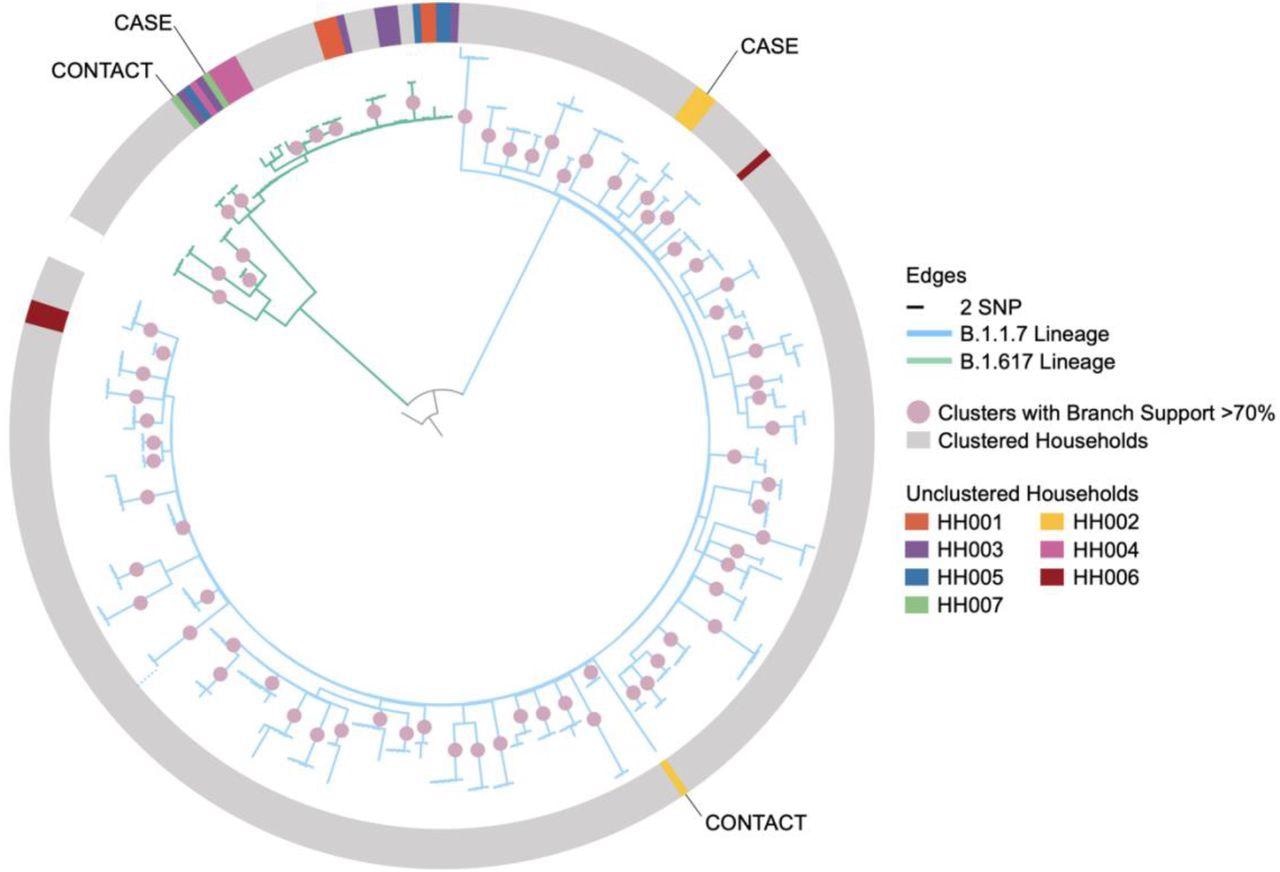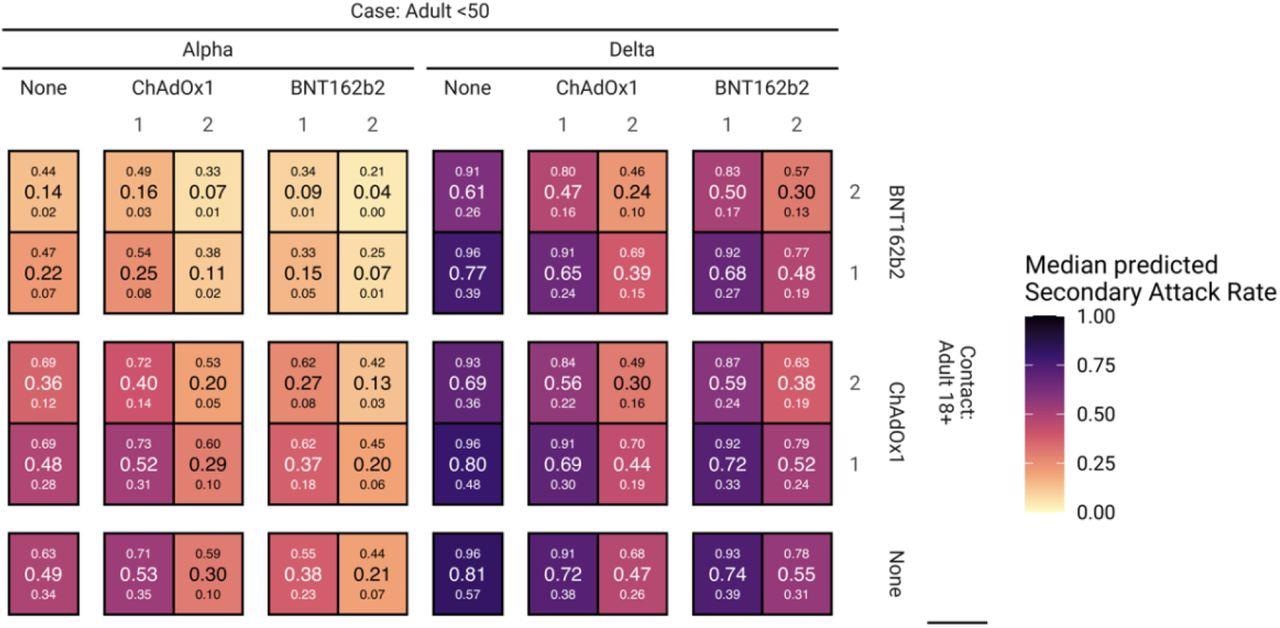A team of UK-based scientists has recently evaluated the effectiveness of coronavirus disease 2019 (COVID-19) vaccines in preventing household transmission of severe acute respiratory syndrome coronavirus 2 (SARS-CoV-2) in England.
Their findings indicate that the vaccines effectively reduce transmission of SARS-CoV-2 alpha and delta variants from breakthrough infections in the household setting, despite having reduced efficacy in preventing infection. The study is currently available on the medRxiv* preprint server.
 Study: Effectiveness of BNT162b2 and ChAdOx1 against SARS-CoV-2 household transmission: a prospective cohort study in England. Image Credit: NIAID
Study: Effectiveness of BNT162b2 and ChAdOx1 against SARS-CoV-2 household transmission: a prospective cohort study in England. Image Credit: NIAID

 *Important notice: medRxiv publishes preliminary scientific reports that are not peer-reviewed and, therefore, should not be regarded as conclusive, guide clinical practice/health-related behavior, or treated as established information.
*Important notice: medRxiv publishes preliminary scientific reports that are not peer-reviewed and, therefore, should not be regarded as conclusive, guide clinical practice/health-related behavior, or treated as established information.
Background
The COVID-19 mass vaccination program was first introduced in the UK in December 2020 with the mRNA-based BNT162b2 vaccine (Pfizer/BioNTech) and adenoviral vector-based ChAdOx1 (Oxford/AstraZeneca) vaccine.
The primary aim of the vaccination program was to protect the most vulnerable population from infection and severe disease, including older adults, immunocompromised patients, and those with preexisting health conditions. In addition, healthcare workers and other frontline workers who are at higher risk of SARS-CoV-2 exposure were prioritized for the vaccination.
In the current study, the scientists have investigated the effectiveness of BNT162b2 and ChAdOx1 vaccines in preventing delta and alpha breakthrough infection and transmission among household contacts in England.
Study design
The study was conducted on individuals with primary infections (index cases) and their respective household contacts. The information on the vaccination status of participants was obtained from the National Immunization Management System, UK.
The participants (both index cases and contacts) were asked to collect respiratory samples on days 1, 3 and 7 post-recruitment using self-testing kits. The samples were tested later on by reverse transcription polymerase chain reaction (RT-PCR). A subset of samples was subjected to genomic sequencing to identify the alpha and delta variants.
Important observations
The study involved a total of 195 index cases and 278 contacts. On average, each household had 2 contacts. About 77% and 52% of index cases and contacts had received at least one vaccine dose at the time of recruitment, respectively. About 41% of contacts tested positive for SARS-CoV-2 within one week after recruitment.
 Maximum-likelihood phylogeny of household index cases and contacts’ sequences with 1,000 ultrafast bootstrap replicates rooted to the reference sequence with a scaled bar of 2 SNP (6.6 × 10−5 substitutions/site). The dotted line at bottom left indicates where a single long branch was collapsed for visualisation. The non-grey shading on the outer ring represents non-clustered households where sequences are coloured by their households. HH002 and HH007 were the only households where none of the contacts’ sequences clustered with their household’s index case’s and this is evidence the contact could have acquired the infection elsewhere and is thus excluded from the analysis.
Maximum-likelihood phylogeny of household index cases and contacts’ sequences with 1,000 ultrafast bootstrap replicates rooted to the reference sequence with a scaled bar of 2 SNP (6.6 × 10−5 substitutions/site). The dotted line at bottom left indicates where a single long branch was collapsed for visualisation. The non-grey shading on the outer ring represents non-clustered households where sequences are coloured by their households. HH002 and HH007 were the only households where none of the contacts’ sequences clustered with their household’s index case’s and this is evidence the contact could have acquired the infection elsewhere and is thus excluded from the analysis.
Age- and variant-specific risk of infection
Of all index cases, 99 had the alpha infection, 24 had delta infection, and 52 had infections with unknown variants. In addition, 20 index cases did not test positive again after recruitment.
In the absence of vaccination of either case or contacts, the risk of delta infection transmission was 1.64-times higher than that of alpha infection transmission. Compared to children, adult contacts aged above 18 years were 1.19-times more susceptible to delta infection. The risk of viral transmission from delta index cases aged 50 years or above was comparatively higher than those aged 18 – 49 years.
 Predicted secondary attack rates (SARs) for each combination of vaccine status of case and contact. Large numbers inside cells are the median SAR, with the small numbers below and above corresponding to the 95% credible interval.
Predicted secondary attack rates (SARs) for each combination of vaccine status of case and contact. Large numbers inside cells are the median SAR, with the small numbers below and above corresponding to the 95% credible interval.
Vaccine efficacy
The effectiveness of two doses of BNT162b2 and ChAdOx1 vaccines against delta infection transmission was 31% and 42%, respective. The effectiveness was similar for alpha infection transmission.
Regarding protection against acquiring alpha and delta infections, the BNT162b2 vaccine had 71% and 24% effectiveness, respectively. For the ChAdOx1 vaccine, the effectiveness was 26% and 14% against the alpha and delta infections, respectively.
Prevalence of secondary infection
In unvaccinated households, the rates of secondary infections with alpha and delta variants among adults were 49% and 81%, respectively. The highest effectiveness of both vaccines against the secondary infection rate was observed when both cases and contacts were fully vaccinated.
Study significance
The study findings reveal that both mRNA-based and adenovirus vaccine vector COVID-19 vaccines effectively reduce the risk of viral transmission from persons who have developed alpha or delta infection despite being fully vaccinated. However, both vaccines have relatively lower efficacy in preventing delta infections.
The considerable level of protection against household SARS-CoV-2 transmission observed in the study highlights the importance of COVID-19 vaccines in limiting the risk of COVID-19, particularly in indoor setups where cases and contacts remain in close proximity for a prolonged period of time.

 *Important notice: medRxiv publishes preliminary scientific reports that are not peer-reviewed and, therefore, should not be regarded as conclusive, guide clinical practice/health-related behavior, or treated as established information.
*Important notice: medRxiv publishes preliminary scientific reports that are not peer-reviewed and, therefore, should not be regarded as conclusive, guide clinical practice/health-related behavior, or treated as established information.